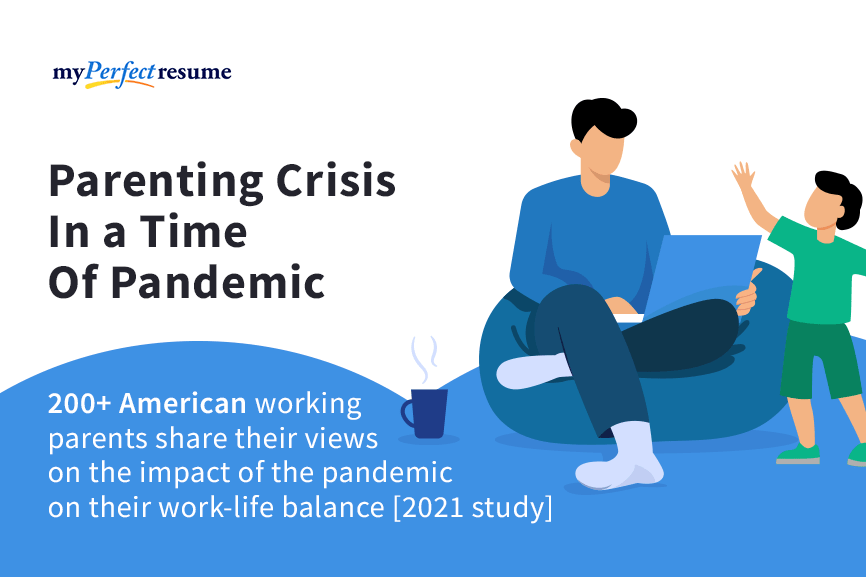What Defines Success?
MyPerfectResume.com [January 07, 2025],
[https://www.myperfectresume.com/career-center/careers/basics/what-defines-success-2022-study]

Our customers have been hired at: *Foot Note
“I’m gonna get dressed for success, shaping me up for the big time…” sang Roxette in 1988. The band produced some four number-one hits, featured on the soundtrack of the iconic Pretty Woman, and became rich and famous. So, they achieved success, right?
And what about you? Have you been successful in life?
Key findings:
- Having a stable job (81%), high earnings (80%), being an expert (80%), and having a high position at work (80%) are top signs of success in professional life.
- In turn, being able to pursue dreams (83%), having a family (80%), feeling satisfaction and fulfillment in daily life (80%), and graduating from college (80%) are top signs of success in private life.
- In general, both career and private success matter in life, so it’s best to balance both (45%).
What is success?
Officially, according to Merriam-Webster, success is:
- The gaining of wealth, respect, or fame.
- A person or thing that succeeds.
- Degree or measure of succeeding.
- A favorable or desired outcome.
On the other hand, if we’d like to approach the topic in a more philosophical way, success can be defined as:
“...a mixture of having a flair for the thing that you are doing; knowing that it is not enough, that you have got to have hard work and a certain sense of purpose”.
Margaret Thatcher, former UK Prime Minister
However, we all understand success in our own way. This’s because only we ourselves can measure success in life and define what it means and what gives us a sense of accomplishment.
We all create unique definitions of success. And for sure, they all depend on what we want to achieve in life. Fame? Fortune? A job we like? The respect of family and friends? A house full of children?
At MyPerfectResume, we decided to confront the idea of success. We asked more than 1000 respondents what success is and what this concept means to them. It turns out that:
- Success is both personal- and career-related.
- 90% of respondents believe they achieved success in life.
- Women are considered to be more successful than men.
- Success in professional life is more important than success in private life.
But that's not all. We have more to reveal.
Work success as they paint it
How do you know if you achieved professional success?
After all, a successful career isn’t something tangible, something you can buy in a store or find lying on the street. It is something you have to earn. And it costs you at least 8 hours per day that you spend working. Remember how we were always told that school is our second home? Well... now the workplace replaced school.
So how do you measure your professional success? By the balance of your account? The number of people your work has helped? The technical skills you've gained? The motivation that you wake up with every morning?
Within the study, we asked respondents what elements related to work-life they consider determinants of success. As you can see from the infographic, the factors standing for professional success are numerous, and most of them are rated relatively high on our priority list.
Our respondents' most critical determinant of success is a stable job (81%).
It’s followed by high income (80%). This factor is almost equally important for men and women. However, the survey data shows an interesting correlation between the age of respondents and the relationship between success and earnings. It turns out that the age group that pays the most attention to money are respondents between 26 and 40 years old. 85% of them agree that high earnings signify professional success. Among respondents aged 25 or younger, “only” 74% think so.
But what exactly do high earnings mean? We asked respondents how high annual salary is an indication of success. Here are their answers:
- Less than $50,000 - 16%
- $50,000–$100,000 - 32%
- $100,000–$200,000 - 12%
- $200,000–$300,000 - 14%
- $300,000–$400,000 - 12%
- $400,000–$500,000 - 11%
- More than $500,000 - 3%
So if you’re earning at least somewhere between $50,000–$100,000 (or even more in a perfect scenario), you can call your career successful.
But earnings are not the only determinant of success in professional life. Being an expert in any field (80%), working in a high position as a manager or director (80%), and being happy at work and getting satisfaction from it (79%) rank almost equally high.
For 76% of survey takers, signs of success are also running their own business, doing socially useful work, and prestige and recognition from colleagues and the business environment. The list closes with fame—“only” 71% believe it’s important to determine if someone is successful.
Now you know the signs of success and what people typically focus on when evaluating whether they have been successful in their careers. Based on them, 9 in 10 respondents believe they’ve achieved work-related success.
We asked our respondents to tell us in their own words why they believe they have been successful in their careers. Here are some of the responses:
- “My salary is great.”
- “I have a good work-life balance.”
- “My profession is my passion.” or “I have my dream job.”
- “I have gotten several promotions in a short time and have reached the position I desired from the beginning.”
- “I am respected by peers and a source of mentorship for new employees.”
Those who believe that have not been successful in their professional life also shared their thoughts. The lack of success in their case is evidenced by:
- “I didn't follow my passion in life, and now I work just to survive.”
- “I make no money.”
- “I retired three years ago and as I look back on my forty years in the workforce, I feel I ‘underachieved’ and too often was unfocused as far as my goals.”
- “I have failed to realize my potential.”
- “I haven't found something that I am passionate about or enjoy doing for money.”
Not everyone’s career is thriving. However, many chase titles, positions, and money and still don’t feel successful. Sometimes it’s good to let it go. But sometimes it’s good to wait as success has no deadline.
Check this out:
- At 40, Stan Lee finally succeeded with Fantastic Four, Spider-Man, and X-Men comics.
- Toni Morrison, Nobel, and Pulitzer Prize-winning author wrote her first novel at age 40.
- At the age of 77, after spending 27 years in jail, Nelson Mandela became South Africa’s president.
- Vera Wang’s career as a fashion designer began in her 40s.
- Colonel Harland Sanders, founder of Kentucky Fried Chicken, didn't begin his career as a restaurateur until he was 62.
And there are many more. Definitely, success should not be measured by age. Many famous people didn’t succeed before their 40s, 50s, or even 60s.
But still, the question of how to measure professional success remains unanswered? Are the determinants outlined above sufficient?
“I have learned that success is to be measured not so much by the position that one has reached in life as by the obstacles which he has had to overcome while trying to succeed.”
Booker T. Washington, educator and presidential advisor
But these obstacles also take place in private life. So obviously, success isn’t only associated with a prosperous career.
Private success as we see it
Let’s now move to the analysis of the private dimension of success. As before, we can ask the same question: how do you measure your personal life success? By the size of your apartment? A college degree? Number of pets?
How do you know if you achieved success in private life?
When it comes to private life, most of our respondents– 83%–agreed that being able to pursue their dreams is the best proof of success.
Slightly less, 80%, believed that success in private life is also determined by having a family, satisfaction, and fulfillment in daily life, and graduation from college.
As a determinant of success, 79% of respondents considered having a purpose in life. While for 76% having an apartment or a house also matters.
At the end of this part of the survey, we asked if prestige and recognition from family and friends are signs of personal life success. As many as 75% agreed.
Measuring success in private life, those respondents aged 26-40 tended to agree more strongly with the presented determinants. These are people who have been active workers for a while and already have families. Also, they certainly see how private happiness is indispensable for overall success in life.
Overall, just like in the case of career, 9 in 10 respondents believe they have been successful in their private life. Why do they think so?
- “I’m being loved by my family.”
- “I have a comfortable home that makes me happy, and I have a lot of good close friends, who are loyal and supportive and make me very happy.”
- “I’m feeling an overall sense of satisfaction with life.”
- “I live comfortably. My house is paid for, and I am able to pay all of my bills and take vacations.”
But in life, not only happy endings happen. For some, happily ever after is just a fairy tale. Thus, 10% of our respondents complain about their private lives.
- “I don’t have a family that supports my income. I feel like I am working for myself. There are no children to provide or care for. I have no romantic prospects at all.”
- “I have not made the social connections.”
- “I feel like I haven't hit all my life goals yet, so I feel deficient in my private life.”
- “Two failed marriages and health issues make me think I was looking in the wrong places for happiness and that I didn't take things seriously enough when I was younger. I have nothing to hold onto and look at and say ‘I built that.” I have started over so many times that I don't know myself that well anymore.”
But both successes in personal life and career are more complicated aspects.
Someone successful in their personal life may experience failures in their professional life, concluding that they haven't been successful at all. In contrast, a wealthy person who holds a prestigious professional position, but has no family, may not consider themselves successful.
Therefore, it is important to approach "success" holistically.
“You will never feel truly satisfied by work until you are satisfied by life.”
Heather Schuck, entrepreneur
Fifty shades of success
Private life and professional life are the two interacting elements that together indicate an overall level of feeling successful in life. Our professional sphere influences our personal life. As a 2002 Journal of Organizational Behavior study said: “job experiences spill over onto other spheres of life, and vice versa, suggesting that a positive relationship exists between the two variables”.
Therefore, it’s hard to consider career success vs. personal success objectively. After all, the perception of one is seen through the prism of the latter.
So, shouldn’t we all agree that to understand success best, it must be considered in all aspects of our lives?
We asked respondents to select the 3 most important determinants of success for them from the list.
Having a family, 34%, comes first as the most crucial determinant of success in life. A bit less indicated having a stable job, 30%. This difference shows that, after all, in life, we might place more value on personal happiness than on a career.
The top of the list closes with having a purpose in life and satisfaction and fulfillment with everyday life, both 29%.
Next, 26% of respondents considered being able to fulfill their dreams as significant, while 25% stated that high salary matters. Fewer respondents bet on owning an apartment or house (22%), doing socially useful work (21%), and graduating from college (20%).
The list of ingredients in the recipe for success closes with being an expert (19%), having prestige and recognition (17%), and fame (15%).
Analyzing these data, there is no statistically significant difference between the answers of men and women. For both having a family is in the first place, while they pay no attention to fame. A career is almost equally important as family life. Want to take your career to the next level? Check out how to write a resume that wins interviews.
Like those presented in the context of career and personal life alone, these results deal with the success that still is understood as an abstract concept. Despite definitions or our respondents’ opinions, we cannot generalize what makes a success. But, to make “success” more tangible, we can present our respondents with a choice. Is personal or professional success more important to you?
Weighing professional vs. private success
Choosing between success in your personal life or your career is not an easy or obvious choice. Again, it depends entirely on the individual, their priorities in life, and their definition of success.
We had our survey takers decide what matters more in their lives. When asked what is more important to you: success in your personal life or career? they simply couldn’t decide. The most significant percentage of respondents seek success in balancing private and professional life. 45% say that personal life and career success are equally important and should be balanced. Only 27% rank a successful career as more important, while 28% believe that success in private life matters more.
But when not given the option to balance those aspects of life, most of them, 53%, admit that a career is a more valuable determinant of success. 47% choose success in private life.
What about making sacrifices for a great career or happy family life? 77% would sacrifice their personal life for success in their career. A bit more, 83% would sacrifice their careers for success in personal life. This confirms that success in our personal lives matters more. Probably more than work, it determines how we perceive overall success in life.
Because all things considered, 9 in 10 respondents feel that they have been successful in life.
Now the question of measuring success perhaps seems simpler to us. However, this raises a question. When defining our own success, do we look through the prism of others?
Faces of success
Close your eyes and imagine... a successful person. Who do you see? Does a specific name come to your mind, or maybe a philosophical description of a person who might consider themselves successful? Are these people men or women?
We asked our respondents if they believe that, in general, women or men are more successful in life. Their opinion was inconclusive and led to the formation of two nearly equal camps.
According to our survey takers, women (52%) are a bit more successful than men (48%).
59% of women believe their gender is more successful. In turn, 41% of female respondents voted for men to be better examples of success stories. When it comes to men, 44% believe that women are more successful, while 56% voted for their gender.
In other words, women are more likely to see their own gender as successful, and it was this that tipped the balance in favor of women overall.
At the end of the survey, we asked about specific names, icons of success, who may have been the basis for developing our personal definition.
As a result, the top three most successful women appear to be Kamala Harris (37%), Angelina Jolie (32%), and Serena Williams (30%).
Among the top three most successful men we have Joe Biden (38%), Abraham Lincoln, Elon Musk and Albert Einstein (with the same number of indications, 30%), and Donald Trump (29%).
As you've surely noticed by now, our respondents pointed to celebrities, sportspeople, and those from the world of politics. Historical figures also found their place on the list. So it's not that we only associate millionaires, celebrities, actors, or singers with success.
But there were also some who approached the subject from a different perspective. According to a few, a successful people are:
- My son / My daughter
- My parents
- My life partner
- Anybody that makes enough to be happy and pursue whatever goal they want
- Those people who won both personal life and career
Success has many faces. And it’s up to us what we see in the mirror every day.
Now the time has come to summarize all the findings.
Key takeaways
If we asked respondents to give us their definition of success, we would get a thousand different answers. Instead, we just confirmed that success is an abstract and highly subjective concept. No one will ever come up with a universal definition.
- 9 in 10 respondents say they achieved professional and private success but also succeeded in life in general.
- Both men and women are successful, and among them, we find Kamala Harris, Joe Biden, Angelina Jolie, Abraham Lincoln, and Serena Williams.
Let this final thought resonate in your head:
“Success is peace of mind, which is a direct result of self-satisfaction in knowing you made the effort to become the best of which you are capable.”
John Wooden, American basketball coach and player
Methodology
The findings presented were obtained by surveying 1000 American respondents. They were asked questions relating to their perception of professional and personal success. These included yes/no questions, open-ended questions, scale-based questions relating to levels of agreement with a statement, and questions that permitted the selection of multiple options from a list of answers.
Limitations
The data we are presenting relies on self-reports from respondents. Each person who took our survey read and responded to each question without any research administration or interference. There are many potential issues with self-reported data like selective memory, telescoping, attribution, or exaggeration.
Some questions and responses have been rephrased or condensed for readers' clarity and ease of understanding. In some cases, the percentages presented may not add up to 100 percent; depending on the case, this can be due to rounding, or due to being part of a larger statistic, or due to responses of "neither/uncertain/unknown" not being presented.
Fair Use Statement
Achieve your success by sharing these findings! If you think your audience will be interested in this information, you can share it for noncommercial reuse. In return, all we ask is that you link back to this page so that your readers can view the full study.
About Us
At MyPerfectResume, we understand that professional success can be defined in various ways. Our goal is to support you on your unique journey by providing a vast collection of resume examples and professional resume templates. Explore our resources to and use our online resume builder to create a tailored resume that showcases your achievements, helping you define and achieve your vision of professional success.
How we reviewed this article
Since 2012, we have helped more than 11 million job seekers with our user-friendly tools and career advice articles. We have a rigorous editorial process to ensure that our content is helpful and accurate. Explore our recent employment studies and press coverage, and discover why our certified career experts are a trusted source for professionals worldwide.
Sources
- Akhtar, A., and Ward, M., “27 people who became highly successful after age 40”
- Allen, T., “A Definition Of Career Success And Why So Few People Ever Experience It”
- Boitnott, J., “7 People Who Became Millionaires After 40”
- Chacko, T.I., “Job And Life Satisfactions: A Causal Analysis Of Their Relationships”
- Merriam-Webster, “Success”
- Heller, D.K., Judge, T.A., and Watson, D.B., “The confounding role of personality and trait affectivity in the relationship between job and life satisfaction”
- Hutchings, L., “Margaret Thatcher's Most Famous Quotes”
- Orpen, C., “Work and Nonwork Satisfaction: A Causal-Correlational Analysis”
- Salgado, J. F., and Moscoso, S., “Cross-cultural Evidence of the Relationship between Subjective Well-being and Job Performance: A Meta-analysis”
- Schmitt, N., and Mellon, P.M., “Life and job satisfaction: Is the job central?”
- Unanue, W., Gómez, M.E., Cortez, D., Oyanedel, J.C., and Mendiburo-Seguel A., “Revisiting the Link between Job Satisfaction and Life Satisfaction: The Role of Basic Psychological Needs”
Our customers have been hired at:*Foot Note













